Alumnae, Colleagues, Friends—A Conversation
Thy Traditions Dear, the Milton Hershey School Alumni Relations magazine, talked alumnae Fonati Abrokwa ’01 and Ododo Walsh ’98 about the challenges and rewards of working where they once played, and how MHS impacted not just their childhoods, but their lives.
Thy Traditions Dear (TTD): Fonati, you are a 2001 graduate of MHS and hold a degree from Lock Haven University. Can you tell us how you ended up coming back to work at MHS?
Fonati: While I was still in college, I did an internship here at Milton Hershey School and found out about Transitional Living, but they weren’t hiring at the time. They were still conceptualizing what the program was going to be, so after my internship I went to Philly and worked as a case manager for Head Start. About a year later, I got a phone call from Jim Case, who was the director of TL at the time, asking if I was still interested, and I said absolutely.
TTD: When did you start working here, and what inspired you to “come home” to work at MHS?
Fonati: It was late 2008 when I came back. I’d always loved everything about Milton Hershey School, and I had connections here, with my previous houseparents and my field hockey coach. But once I heard about TL, I was really impressed and wanted to be a part of that. The TL program is what inspired me to come back and help future Milts.
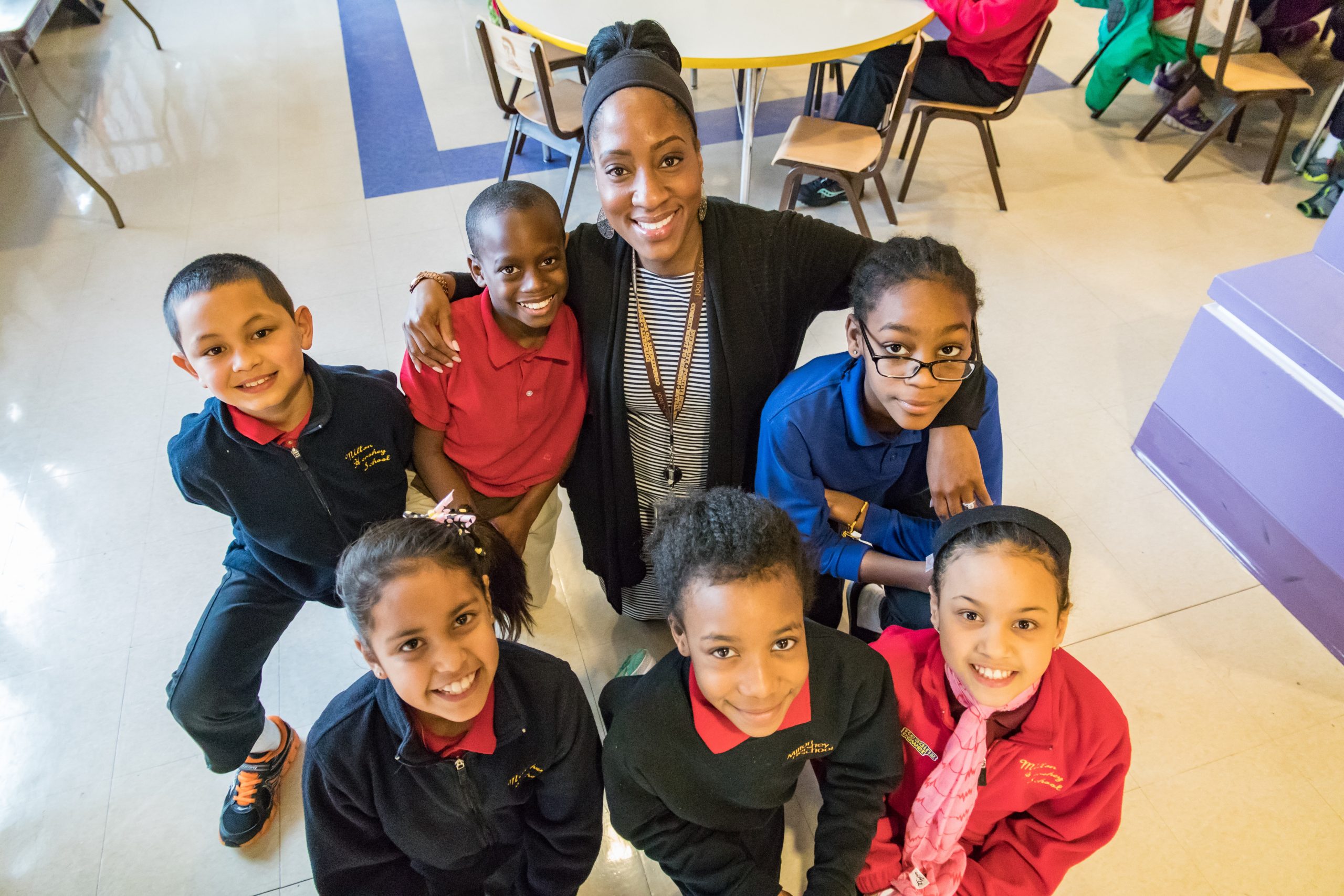
TTD: Ododo, you are a 1998 graduate and also went to Lock Haven. How did you and Fonati meet? Were you friends at MHS?
Ododo: I remember Fonati … we enrolled at Milton Hershey School on the same day—Aug. 11 or 12, 1991. She and my brother were in the same elementary student home, Monroe, and she was outside playing on the swing. She was always my little brother’s friend, until high school when we started playing sports together. She is three years younger than I am, so when I was a senior, she was a freshman, and we played field hockey and basketball together, did track and field. Then when I was a senior at Lock Haven, she came as a freshman and that’s where our friendship started developing.
TDD: Fonati, is it true that you helped to recruit Ododo to work at MHS?
Fonati: That’s an interesting story. Ododo and I stayed connected after graduating MHS and occasionally she’d ask about opportunities at the school. We had talked about my position, but at the time I wasn’t really certain she was interested. So I just gave her some information about what it is that I do.
We were in the process of reopening the position for a Home Life administrator in our division. I had mentioned to Barb [Nichols in Human Resources] that I was in contact with a graduate who would be a really good candidate and she should take a look at her, and at the same time Barb indicated that she was notified by a graduate who was interested in coming back to the school. I had no idea that we were speaking about the same person. When it was revealed that Ododo Walsh was the interested candidate, I almost fell out of my chair! I knew she would be an ideal candidate.
TDD: Ododo, what were you doing at that point, when all of this was going on?
Ododo: I was the director of a community-based behavioral mental health facility in Coatesville. I oversaw a program providing therapeutic support staff workers to children in their schools, their homes, and the community, and had been at that organization for about five years. Prior to that, I worked in Philadelphia with kids returning from their juvenile placements, trying to get them employment.
I’d always wanted to come back to work at Milton Hershey School. After I graduated, I worked every summer of college in what’s now called YRE—it was Summer of Opportunities back then—and after I graduated college, I lived in Hershey for a year, coaching field hockey with Gina Alessi.
Then I decided to get my master’s degree at Temple, but it had always been in my heart to work at Milton Hershey School. I loved this place from the day I stepped foot on campus when I was 11 years old. It took about 14 years after graduating to come back as a Home Life administrator … almost six years now.
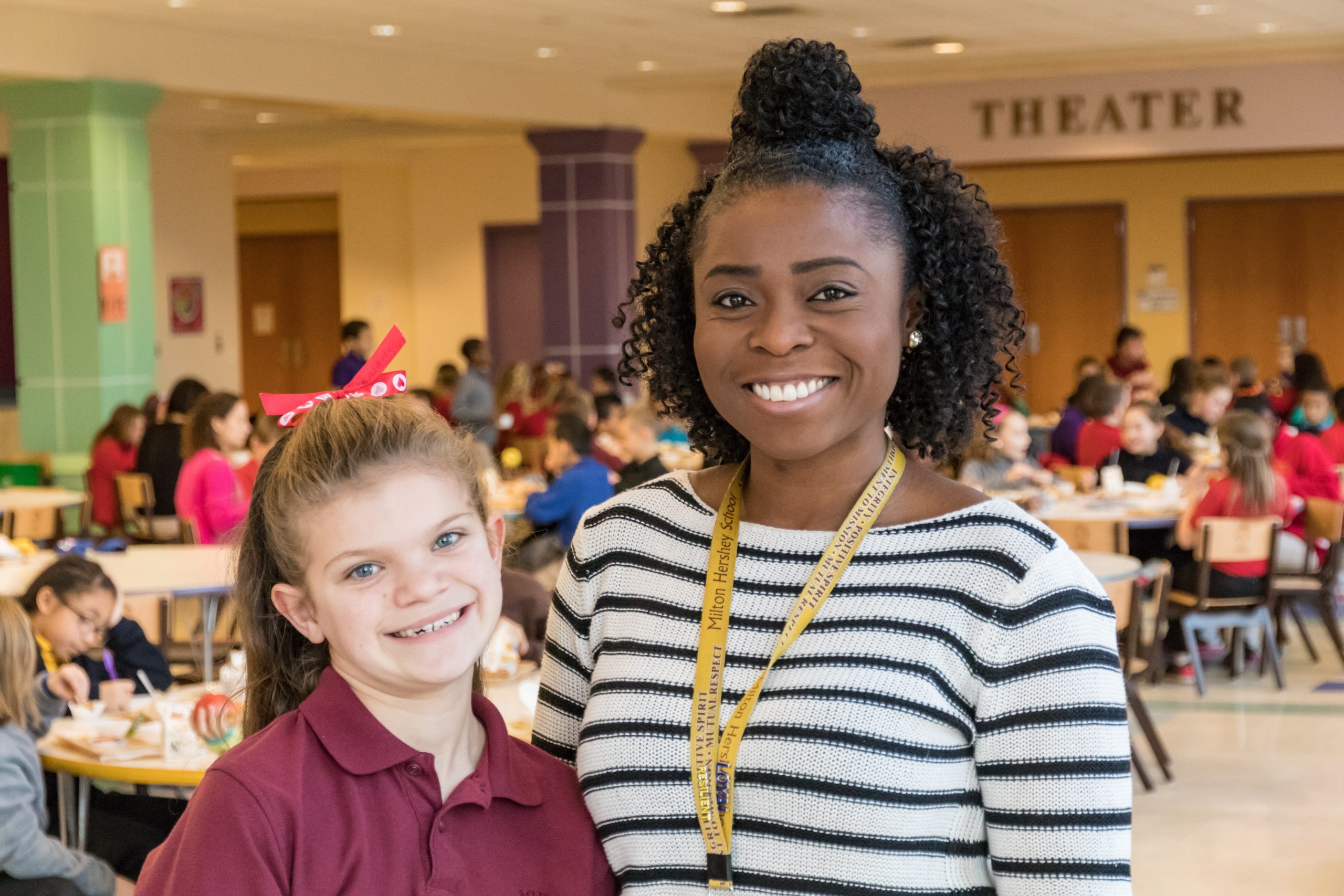
TDD: Fonati, please describe your current role at MHS.
Fonati: The way we describe it to the kids is, we’re pretty much the principals of Home Life. We help navigate issues that either the houseparents or the students are experiencing—we’re the hub for resources for houseparents to do their jobs to the best of their abilities and for resources for the students in our homes.
I think of it as “one call does it all.” We wear a lot of different hats, and we do a lot, from responding to crises, to helping support families or parent/sponsors when they have questions houseparents aren’t able to answer, to disciplinary issues that arise with students and, unfortunately, sometimes with adults.
Ododo: Right, and the component of supporting parents/sponsors, we help them understand our policies and procedures, help them adhere to those so the houseparents are able to do their jobs, and also so the parents are able to have their needs met in regards to spending time with the kids. We definitely wear a lot of hats.
TDD: Is there a hat either of you likes wearing the most?
Fonati: I particularly like the fact that we’re able to interact with students daily, that not only are we a support system for the adults, but the kids know that we support them too, that they have an advocate—a voice—in us. I’m proud of that. That helps me in this position.
Ododo: For me it’s pretty much the same. My connection and my energy come from the kids, and I really want to make them feel connected. For little kids, it can be hard being in this environment, and they are needy. I feel I’m like the super-hugger, constantly hugging and giving smiles and trying to connect to the kids on that level… knowing their names and really trying to let them know that there’s somebody else who cares about them here.
TDD: Talk a little bit about the resources MHS provides to help you support the kids and stay focused on the important work you do.
Fonati: I hate to bring up COVID-19 because it’s just a very stressful situation for everybody right now, but I think it highlights the resources we have here. This incident puts a spotlight on the fact that our houseparents do not have to leave to take care of the kids who are in their care. Food is delivered to them daily, already cooked, so that’s one fewer area of stress. Pretty much everything that they need at this point to sustain their house is provided by our campus. So even though the world around us might be significantly impacted by this virus, we have a buffer because we don’t really need to venture off campus too much … that’s just one example of how blessed we are with the resources we have here.
Ododo: I would add that the school has invested in providing those resources because we know all kids are full of potential, and the difference for them in reaching that potential is getting past the barriers in the communities that our students are coming from. As a school, dedicating the resources to really meet those basic needs—the food, the clothing, the feeling of safety, the consistency of routine—allows our kids to focus on learning and taps into their full potential, so they hopefully stay and eventually can break that cycle of poverty.
TDD: Let’s switch gears a little bit. Ododo, how does it feel to work for your alma mater?
Ododo: Like I said, the moment I stepped foot on campus at Milton Hershey School, I fell in love with the school. It was always a place that I wanted to come back to, and I remember when I received the offer to come back as a Home Life administrator, I cried. It was my dream come true. I felt a great sense of pride that the school chose me to come back to work here and saw that I had things to offer the adult and student community.
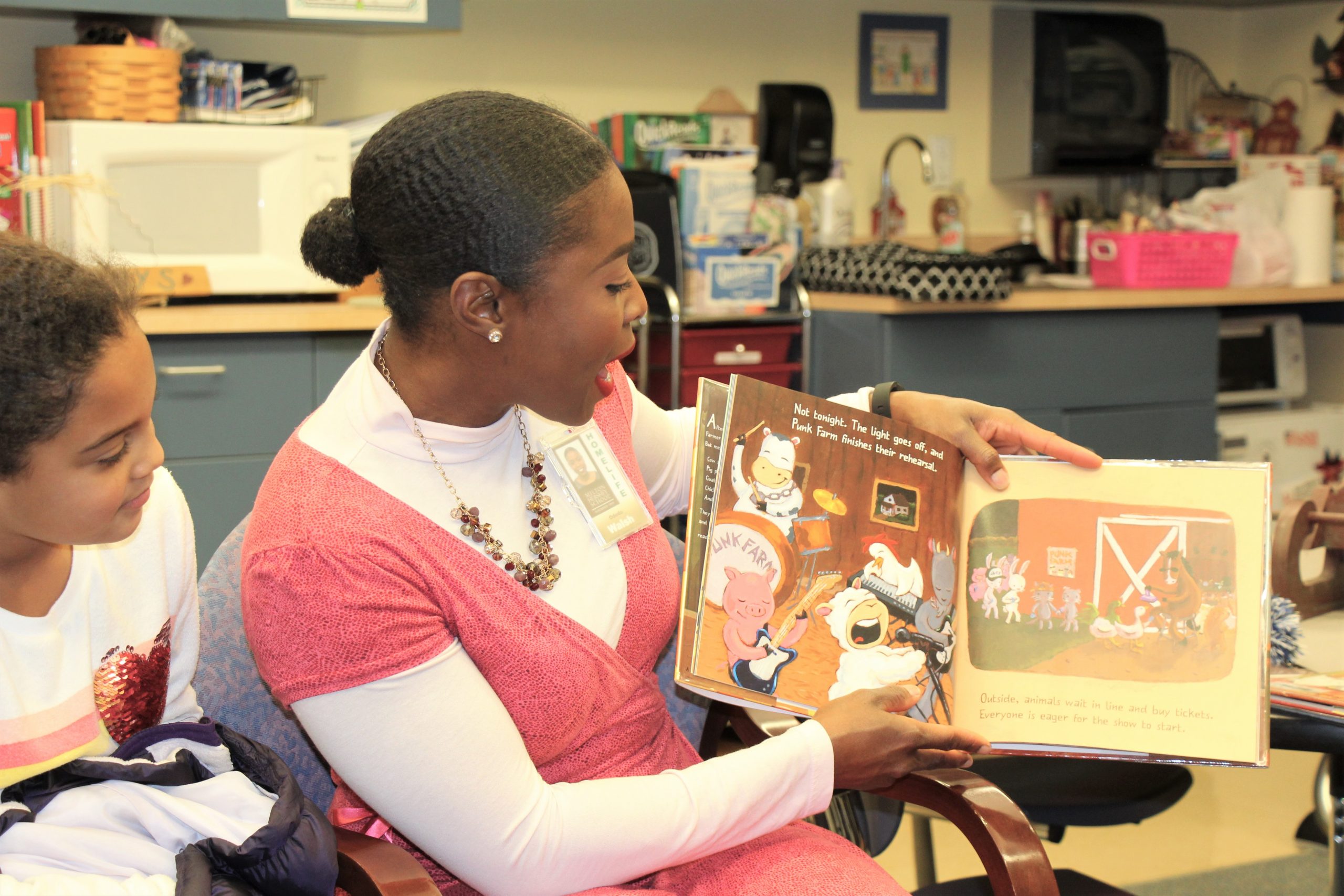
Fonati: I echo Ododo’s sentiment. I think for me, I was always one of those kids while here who took advantage of all the opportunities MHS had to offer and didn’t want to leave. So when I had the opportunity to come back, I couldn’t pass it up, and I’m still blessed every day to be a member of the staff here and impact lives.
Again, we’re in a situation where we can do our jobs safely and we don’t have to worry about some of the struggles that other organizations have to worry about, the lack of resources other organizations have to worry about. I’m still reaping the blessings of MHS as an alumna employee. It’s a very humbling feeling—you feel a sense of obligation and duty as a graduate because you want to do for these kids what was done for you, you want to have the impact that was had on you … it’s part of why I came back.
TDD: We have several alumni working on campus, some your age, some older, some younger. How is it working with family?
Ododo: There’s a sense of calm, a sense of comfort coming on campus and seeing people who shared the same experience as you. It can be really fun when alumni get together because, in spite of our varied generations or time spent at the school, we can count on stories that connect us and highlight the bond that we have.
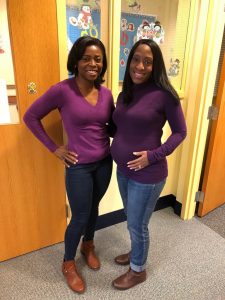 Fonati: It’s also comforting to know that you have someone who knows your intentions, who knows you beyond work, so when you need someone to hold you accountable, or you need someone to be honest with you about whatever it may be, that helps you not only be a better employee, but a better person. I appreciate that, especially with Ododo, being that we work so closely together and that we have a bond. I know that she will always be honest with me, and I’ll be honest with her—that helps us be better employees here.
Fonati: It’s also comforting to know that you have someone who knows your intentions, who knows you beyond work, so when you need someone to hold you accountable, or you need someone to be honest with you about whatever it may be, that helps you not only be a better employee, but a better person. I appreciate that, especially with Ododo, being that we work so closely together and that we have a bond. I know that she will always be honest with me, and I’ll be honest with her—that helps us be better employees here.
TDD: That’s wonderful. Of course, there are challenges in any job. What challenges do you face in your work?
Ododo: The challenge is just that there’s always a lot to do and feeling that you’re not always getting to everything that there is to get to.
Fonati: Also, there’s a challenge in the balance of advocating for our kids and supporting the houseparents. I think sometimes there’s this perception that we will side with the child over the adult because we’re alums—that’s something you think about, but ultimately, we still do our jobs to support our kids but also support our employees.
TDD: What would you say to alumni who might be considering applying to work at MHS?
Fonati: Definitely stay connected and reach out. It’s great to be here, but you don’t want to be here just to be here. Make sure you find out what it is you want to do and what impact you want to make, and connect with someone here who can point you in the right direction. Sometimes alumni come back and they’re looking at this from their childhood experience, and it’s totally different once you come back as an employee. Understanding the culture and the school as an adult is valuable before you commit to coming.
Ododo: I think, too, we do have a lot of alumni who have broken that cycle of poverty and have found success in their lives, whether it’s with their careers or managing healthy relationships. I do want them to consider Milton Hershey School as a place they can come and give back to. That should be an expectation of alumni, especially those of Milton Hershey School which did so much for us, not only financially but socially and emotionally, and I think if you’ve been able to do something positive with your life, you should look at the school as a place that you could give back to—with the students or with our community at large.
TDD: We talk a lot in Alumni Relations about the Power of One—that one staff member from your student days at MHS who stands out. Do you have a Power of One?
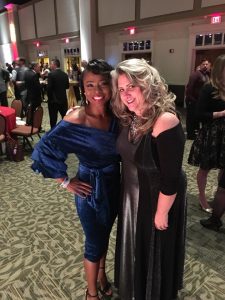 Ododo: Rebecca Brownell, the reading specialist in the elementary school—she’s the staff member who I stayed with during the summers when I came back to work, and after I graduated, we stayed in contact. We’ve maintained this beautiful relationship where she has really become family to me.
Ododo: Rebecca Brownell, the reading specialist in the elementary school—she’s the staff member who I stayed with during the summers when I came back to work, and after I graduated, we stayed in contact. We’ve maintained this beautiful relationship where she has really become family to me.
Fonati: For me, it’s very hard to say Power of One, because I have the Power of Many. Gina Alessi helped me get into Lock Haven, helped me get my internship here, and stay connected with me once I came back to the school. Mr. [Leroy] Galloway was a huge influence on me while I was here, encouraged me while I ran track at Lock Haven, and again I connected with him once I got back. And then I have the Campbells, who were my houseparents when I was in Elementary Division—who oddly enough, I supervise now—and my senior division houseparents, Mr. and Mrs. Brooks. All the adults I had as a student here were the same adults who supported me and encouraged me once I became an employee. They’ve all influenced my life in different ways and continue to do so.
TDD: Have I missed anything that you’d like to share with your alumni brothers and sisters?
Fonati: I would just like to add that it’s such a joy to have Ododo as a part of our team and to work with her every day. She challenges me to be better. It’s a very surreal experience to go through challenges with someone who really has your best interests at heart. It makes the world of difference.
Ododo: That’s really true. In our role, we’re on call 24/7. Before Fonati had her daughter, she was my go-to person if I needed help with my kids because I had to respond to a student home in the early morning when my husband had already left for work. Now she has her daughter, and I’m getting to be that support for her as well. We’re definitely family.

